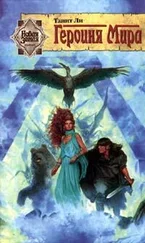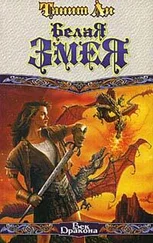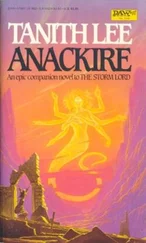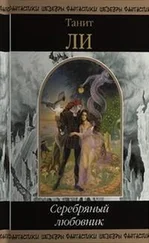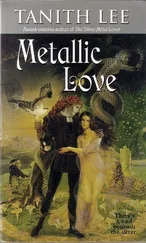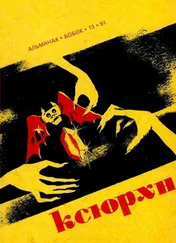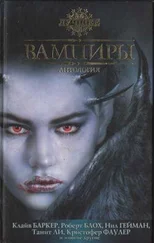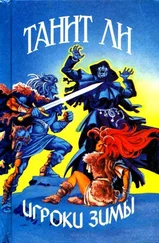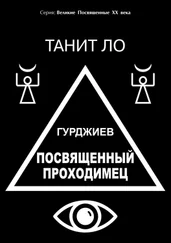Nevertheless, they got their zeebas, weapons, food from the kitchen, and set off, catching up to Yannul’s men on the hills.
The dog had the wolf-scent all the way, but it was a prolonged trial. By midday they were miles up and over the hills, with only one abandoned cave to show, and that quickly abandoned also by the wolf-dog.
The heat smote down. They entered a wood and stopped to eat in its shade. The two servants diced sleepily. Even the dog rested, its nostrils alert, but its eyes and tongue lax. It was useless to move on until the sun moved sideways off their craniums.
Where the wood ran down the hill was a wide brilliant pool. Before he quite knew it. Rem found himself swimming across it with the boy. The light meal was no trouble, but after a while each of them turned on his back, floating on the buoyancy, staring up through the leaves to the day and, blinded, shut his eyes.
“That wolf,” said Raldnor, “he must be somewhere near. We’ll come on him before sunset.” But then, “I never yet killed anything and liked it. The chase, yes. And it has to be done. But not to be liked. I’d suppose it’s that way, killing men.”
“Men are easier to kill,” Rem said.
“More stupid than a beast, do you mean?”
“No. But easier.”
After a long while the boy said, “To you, perhaps.”
Then nothing.
It would almost be possible to sleep in this water.
Presently Lur Raldnor, less life-weary, swam for the bank. Rem watched him, the tanned body like a stripe of gold against the darker stripes of the trees.
The responses of his own flesh set Rem swimming again, up and down, efficient clockwork. He had no intention of coming out of the pool, watched in turn, and the evidence of Zastis on him like a blazon. One could blame changes of temperature and element only for so much.
When he did wade out, Raldnor was lying on his belly, head on his folded arms, eyes shut again. Then, as Rem walked to his clothes, there came an oath worthy of the mess hall at Istris.
“— Anack! Who did that to you?”
“What?”
“There are whip lines across your back. A whip with teeth.”
Rem had forgotten. It was a long while since someone had thought to comment or inquire. Not since Doriyos. . . .
“Asleep on duty eight years ago, in the service of my King,” he said, startled by his own paraphrasing bitterness.
Without prelude, for he had not heard Raldnor stir, he felt the boy’s hand gracious yet firm against his spine. It was not an invitation, one sensed that. It was the magnetism of compassion. Before he could control the reflex. Rem shrugged him away. “No.”
“I’m sorry. It can’t still hurt you, can it?”
“It doesn’t.”
Rem dressed. Raldnor had stopped talking, standing naked at his back, clothed only in blamelessness.
Beyond the hill was another hill. You climbed it and there was another. They piled behind each other, and then there were the distant mountains.
Rem had gone back through the wood, nodding to the dice-playing servants, and away. He meant to give himself the half of one halved hour, then return. Things would be as they had been, then. Except, obviously, they had been this way from the start.
One of the mountains was moving. Like a great ship, it came sailing toward him, filling the horizon. The top of the mountain was smudged by a sunset many hours away. Lower, the hillside rock opened on a solitary ink-black nostril—the wolf’s lair? No, not that.
Nearby, there was a hovel in a wretched field. A woman came suddenly out of the hut. She seemed to see him; she waved to him and hurried up. She moved in a coquettish way, but, coming close, he saw her dirt, her age and her pathetic idiocy.
“Would you like to come in the house?”
The world exploded like a shattered mirror. Pieces of vision fell down.
“Would you like to come in the house?”
He could see again. He could see the mountains far off in their correct order, the light of primal afternoon on the hills. There was no cave, although there was a field, and a small cot overhung by fruit trees.
“Lord?” the woman said. “Lord?”
And the woman was still there. But she was hardly old, and not dirty. Her looks were plump and pretty, her black hair held back by a red scarf sewn with beads.
Rem looked down at her. Her welcome was unnerving. It was almost more natural when her face fell, lapsed into terror. She turned and ran from him, screaming.
Out of the hut burst a great brute of a man. As he raced through the field, the woman darted to him and he caught her, held her, glaring at Rem.
“What did you do to her?” the man demanded. “She means no mischief. She’ll have offered you hospitality, that’s all. Out here, most are glad of it.”
Rem said, “I don’t know why she cried out.” The hills were slowly moving, not a vision now, only vertigo.
“You must’ve hurt her. Did he hurt you, Berinda?” the man asked her with urgent tenderness. “Tell me if he did. I’ll do for him.”
The hills steadied. The sky was cut above them as if by a knife.
Rem walked toward the man.
“She surprised me. I may have looked angry. Not meant. She’s gentle, isn’t she?” It was the dulcet Lannic word for simple, and the man, accepting its use, grew less belligerent, though no less protective.
“Well, so she is. But she’s been a good woman to me. She’s given me children, a host of them. Nothing wrong with their wits, either.”
Rem went closer. He offered a handful of coins.
“My apology.”
The man brushed the coins away. Money was not always wanted in the hills, barter was more use, but the symbol he allowed.
“See, Berinda,” he said, “a mistake. Smile now, sweetheart. Smile for me.”
And Berinda looked up at the man, smiling.
All these years, searching for her. And he had not known her. Though she had known him, some dark shadow from her unhappy past. Yes, that would be the cause of her terror. Rem was the fall from the ship, the cruel water, the unloving coast—And now, contentedly here, loved and valued at last, a day’s ride from Amlan. All these years—
“Berinda. That’s a Karmian name.”
“Ah.” The man did not care.
They walked together toward the cot where she had borne the host of children, all alive. Was one of them—
No. No, this much the gods might give, but no more.
“Berinda,” said Rem. She glanced at him, and he smiled at her, without recognition, but friendly, and saw her mislay who he had been in her life.
“We have wine,” she said, “honeyed wine from soft fruits.”
The man smiled, too, showing off her housekeeping. “She’s a rare one for hospitality.”
Rem had forgotten the wolf, the hunt, forgotten Yannul’s son.
He sat in the clean little house, where two small children came in and out—strange he had not heard their voices, as now he did, ringing round the slopes—and one more crawled on the rugs, and a fourth purred at the breast.
He had seen her last, this way. Feeding a child. Not that child now. None of them were that child.
There was not much talk, the time went thick and slow and timelessly. They made no move to indicate the door to him. Of course, he did not go. The man and he exchanged a few commonplaces. Rem mentioned he was up hereafter wolves. Something odd, then. The man casting a look at his wife. “Yes, they’re wolves round about. We get no harm from them.”
As the sun began to go, the man asked for supper, and laughing she put down her sucking child and ran about preparing a meal, like a child herself playing with toys. But it was tasty when it came, if Rem could have got any of it down his throat.
Читать дальше

